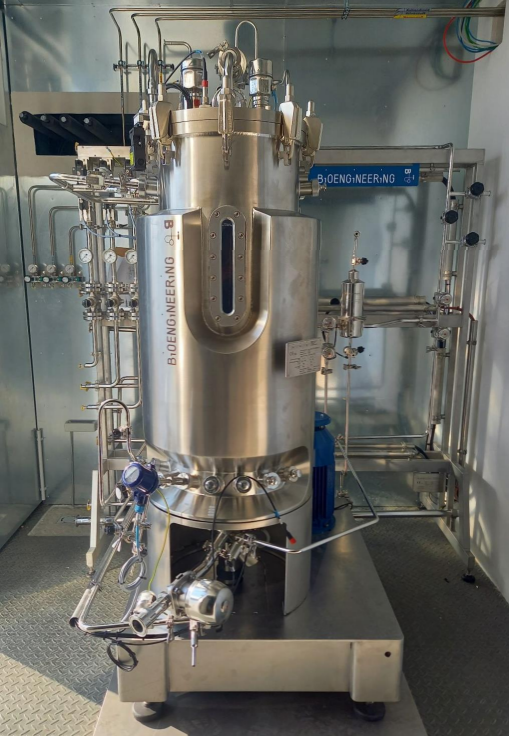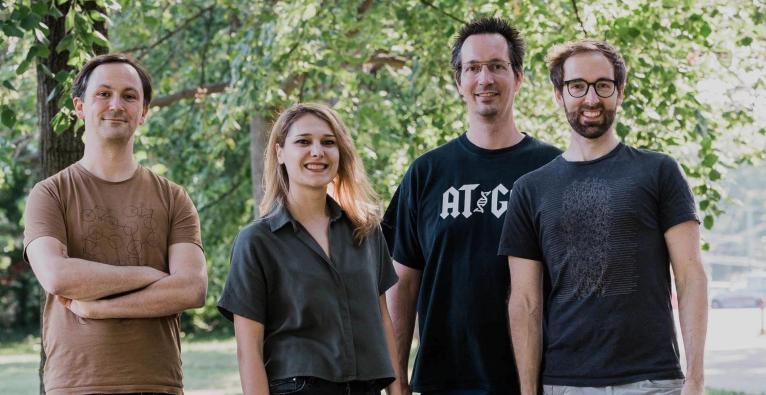Jedes Jahr veranstaltet der Science Park Graz die Start-up Idea Competition, um Innovator:innen aus diversen Branchen und allen Altersgruppen zusammenzubringen. Auch 2025 können Gründer:innen und alle, die es werden wollen, ihre Ideen und Lösungen für verschiedenste Bereiche entwickeln, ihre Träume verwirklichen und dabei auch ein ordentliches Preisgeld gewinnen.
Ziel ist es, Gründer:innen und angehende Entrepreneure schon in einer frühen Phase zu unterstützen und ihnen den Weg zu einem erfolgreichen Geschäftsmodell zu ebnen. Die Einreichphase zur diesjährigen Start-up Idea Competition geht noch bis zum 28. Februar 2025.
Neue Chancen für visionäre Geschäftsideen
Insgesamt vergibt der Science Park Graz 12.000 Euro an Preisgeldern für die innovativsten Gründungsideen. Aus jeder der fünf Kategorien wird eine Sieger-Idee gekürt, die mit einem Preisgeld von 2.000 Euro ausgezeichnet wird.
Außerdem wird es dieses Jahr eine Spezialkategorie namens “Climate Positive Solutions” geben: Jede eingereichte Idee hat damit zusätzlich die Chance auf weitere 2.000 Euro, wenn sie einen positiven Beitrag zum Klimaschutz leistet.
Nach Abschluss der Bewerbungsphase werden aus jeder Kategorie die besten Ideen ausgewählt und anschließend im April 2025 nach Graz eingeladen, um ihr Konzept in einem drei-minütigen Pitch vor einer Jury zu präsentieren. Noch am selben Abend werden die Gewinner:innen im Rahmen einer Zeremonie bekannt gegeben. Auch alle Teilnehmer:innen sind zur feierlichen Veranstaltung und begleitendem Networking eingeladen.
Wer kann teilnehmen?
Sowohl Einzelpersonen, Teams oder junge Start-ups aus allen Branchen sind eingeladen, ihre Geschäftsidee bei der Idea Competition einzureichen. Sei es eine bahnbrechende Technologie, ein nachhaltiges Konzept, ein neues Produkt oder eine innovative Dienstleistung: Wichtig ist, dass die Idee noch in der Vorgründungs- oder der frühen Gründungsphase steckt.
Willkommen sind innovative Ideen aus allen Bereichen – nicht nur technische Lösungen. Die Jury achtet auf unternehmerische Kreativität und Innovation ohne Grenzen. “Wir werten den Grad an Innovation, Anwendbarkeit, Marktpotential und natürlich Originalität”, sagt Martin Mössler, Managing Director des Science Park Graz und Mitglied der Jury, zum Bewertungskatalog.
Geschäftsideen können in den folgenden fünf Kategorien eingereicht werden:
- Energy & Environment
- Mobitlity
- Health & Life Science
- Digital Economy & ICT
- Space
Alle Teilnehmer:innen können auch mehr als eine Idee einreichen – allerdings in unterschiedlichen Kategorien.
Strenger Schutz des geistigen Eigentums
Der Science Park Graz legt indes großen Wert auf den Schutz des geistigen Eigentums. Insofern wird jede eingereichte Idee durch eine Geheimhaltungsvereinbarung – ein sogenanntes “Non Disclosure Agreement” (NDA) – geschützt. Dieser unterliegt die Jury genauso wie alle Mitarbeiter:innen des Science Park Graz.
Dahingehend versichert der Science Park Graz, lediglich die von den Teilnehmer:innen genehmigten Informationen über ihre Idee zu veröffentlichen. Sämtliche Details, die im Rahmen der Bewerbung übermittelt werden, dienen ausschließlich der Bewertung. Vorab findet eine strenge Abstimmung statt, in der die zu veröffentlichen Informationen klar definiert werden. Auch die Rechte an der eingereichten Idee gehen durch die Teilnahme nicht verloren.
Bewerbung und Ablauf im Detail
- Einreichphase: Bis zum 28. Februar 2025 kannst du dich über das Online-Formular auf der Website des Science Park Graz anmelden. Neben einer kurzen Beschreibung deiner Geschäftsidee solltest du auch die wichtigsten Eckdaten (z. B. Teamstruktur, Marktpotenzial, Innovationsgrad) angeben.
- Auswahl: Anschließend prüft eine Jury aus Expert:innen, Investor:innen und Branchenkenner:innen alle Einreichungen.
- Pitch-Event: Die besten Ideen werden von der Jury ausgewählt und zu einem Pitch-Event im April 2025 nach Graz eingeladen. Dort hast du die Chance, dein Konzept bei einem Pitch-Event vor einem hochkarätigen Publikum zu präsentieren. Danach erfolgt die finale Bewertung durch die Jury.
- Prämierung: Im Anschluss wird pro Kategorie eine Sieger-Idee im Rahmen einer feierlichen Veranstaltung gekürt.
Darum lohnt sich die Teilnahme
Die Start-up Idea Competition des Science Park Graz bietet nicht nur die Chance, Preisgelder und Sachpreise zu gewinnen, sondern vor allem ein Sprungbrett in die Start-up-Welt. Durch den Austausch in einem professionellen Gründernetzwerk können Founder und alle, die es werden wollen, wertvolle Connections knüpfen und Know-How sammeln.
Der Science Park Graz zählt zu den führenden Hightech-Inkubatoren Österreichs und unterstützt seit Jahren Start-ups und Gründer:innen auf ihrem Weg in den Markt. Mit seinem breit gefächerten Expertennetzwerk, intensiven Mentorings und hochwertigen Infrastruktur-Angeboten schafft er ein innovatives Umfeld für alle, die ihre Ideen in die Realität umsetzen wollen.
Noch bis zum 28. Februar 2025 bewerben!
Das Bewerbungsportal zur diesjährigen Start-up Idea Competition ist noch bis zum 28. Februar 2025 offen. Weitere Informationen zum Ablauf, zur Jury und zu den Teilnahmevoraussetzungen gibt es auf der Website des Science Park Graz.





